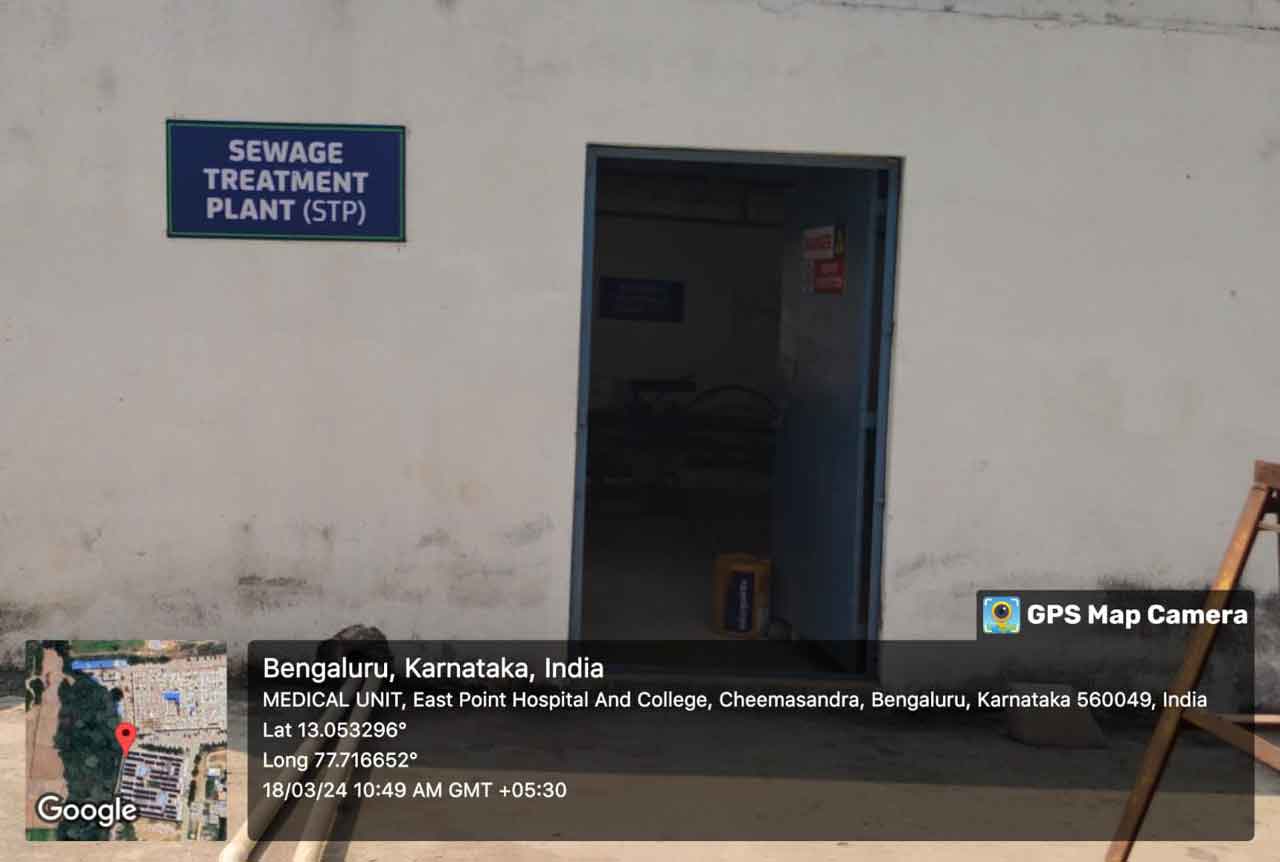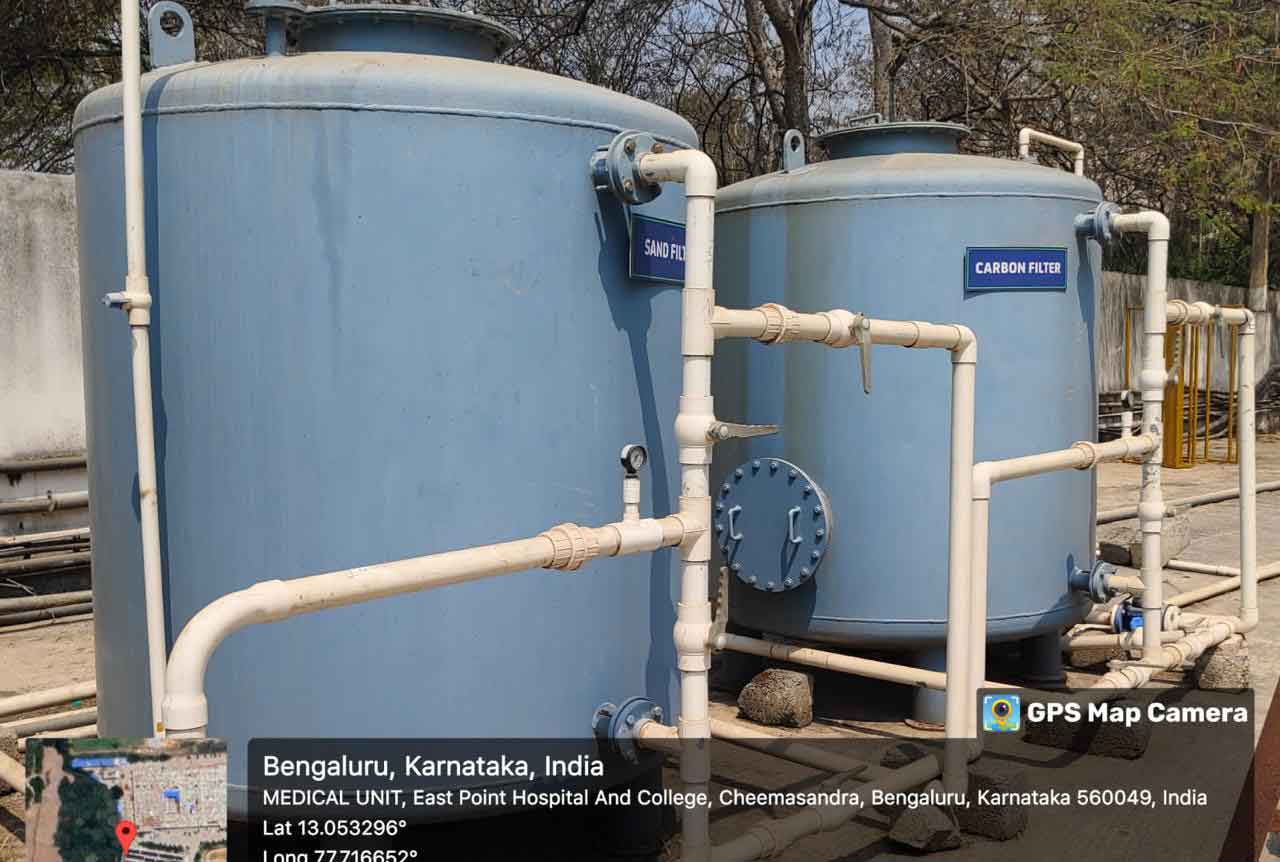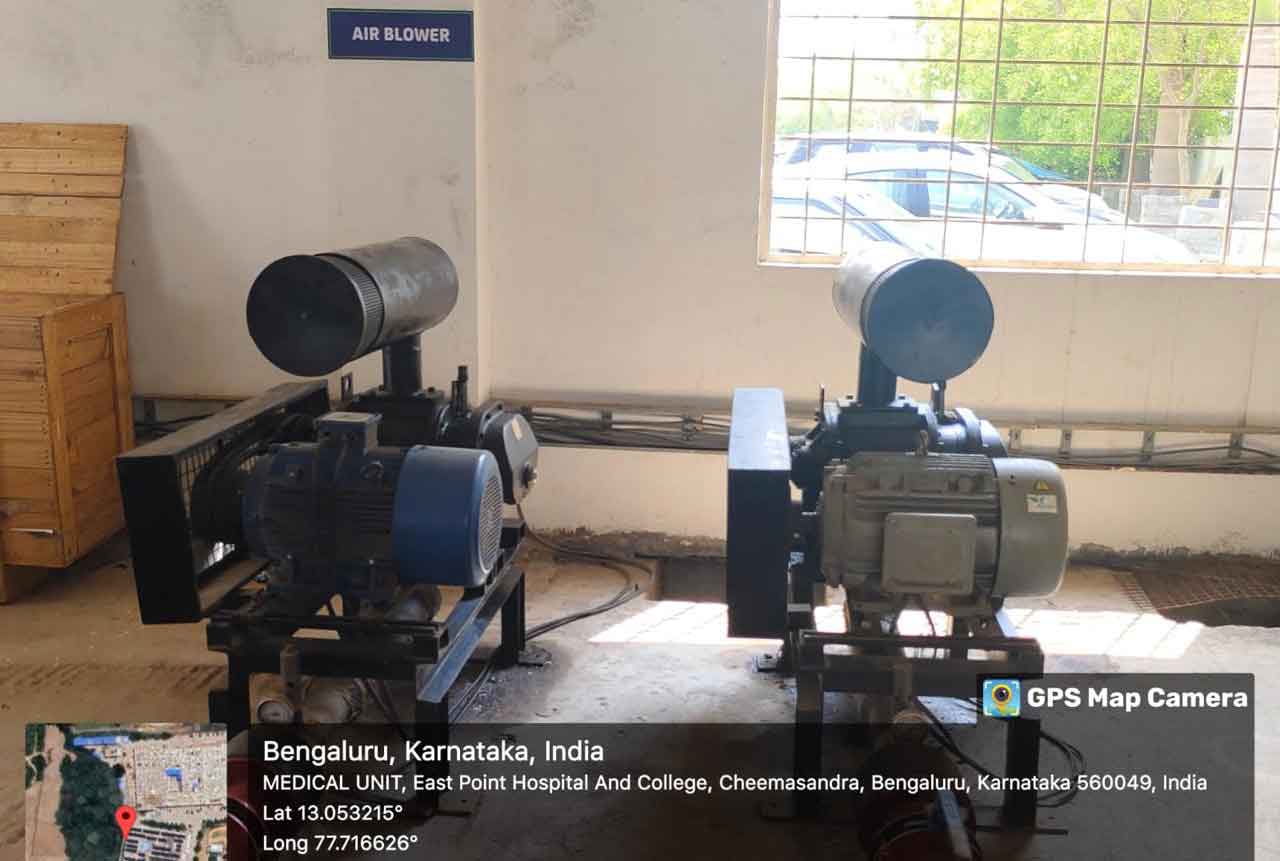East Point College of Pharmacy has effective practices for managing degradable and non degradable waste. These practices include segregation, recycling, and composting. Solid waste can be classified into three types: biodegradable, non-biodegradable, and hazardous waste. Biodegradable waste includes waste from the canteen, food waste, and waste from toilets. Non biodegradable waste includes glass bottles, tins, plastics, and so on. Hazardous waste is waste that is likely to be a threat to health or the environment, such as laboratory chemicals, cleaning chemicals, and acids.
The college has signed a MOU with ITC WOW (Wellbeing Out of Waste). This MOU is intended to create a synergic alliance between both parties for the recycling of dry waste, which is a vital element in protecting the environment. This is a great initiative taken by EPCP for sustainable waste management.
WOW – Wellbeing Out of Waste an initiative of ITC Limited started in 2007 in Hyderabad and in 2013 started in Bengaluru to inculcate the habit of source segregation among the citizens, to prevent the dry recyclable waste and wet waste going into landfill and make it available for recycling and composting respectively, conserve natural resources and empower the waste collectors and rag pickers.
The college produces approximately 10 kg of waste per day, which is segregated by the housekeeping staff. The waste generated in each department and administrative office is collected in small dustbins placed in the respective areas. These small dustbins are also available in every classroom. The housekeeping staff collects the waste from the big dustbins placed at certain locations. They then dump the waste from the small bins into the big bins regularly. The solid waste is taken away daily by the car carrier from BBMP.
The college produces approximately 80-90 kg of wet waste per day and collected by BBMP. The gardeners and team collect approximately 50-60kg of dry leaves per day from the entire campus for decomposition. The leaves will be used for fertilization.
Biomedical waste management at East Point College of Pharmacy is meticulously handled in collaboration with Anu Autoclave and Incineration Services (AAIS). The waste generated from various experiments conducted within the college is systematically sent to East Point Hospital. From there, AAIS takes over the responsibility of collecting and properly disposing of this biomedical waste. This structured approach ensures that all hazardous materials are managed in compliance with safety and environmental standards, minimizing any potential risks associated with biomedical waste.
East Point College has a sewage treatment plant of 450 KLD capacity.
The STP is sufficient for the treatment of 1 Lacs 40 Thousand Capacity of water. This treated water is to be recycled and reused for irrigation, construction, cleaning, and washing purposes (Except for drinking purposes, this can reduce daily consumption of 1 lacs to 17 thousand Litres).

Sewage treatment plant area

Sand and carbon filters

Air blower

Filtration systems in STP
Water meters are used in sewage treatment plants to measure and monitor the flow of water in the treatment process. The purpose of providing water meter in a sewage treatment plant is to accurately measure the amount of water being used and ensure that the treatment process is efficient and effective. The water meter will provide important data on the flow rate, volume, and velocity of the water, which can help to optimize the treatment process and minimize waste.
In addition, water meters will also help with water billing and cost management, by providing accurate measurements of the amount of water being consumed, which can then be used to calculate the costs associated with the treatment process and the efficient operation of a sewage treatment plant and help to ensure that the plant is able to deliver high-quality treated water that meets regulatory standards.
The college has recently installed a Sanitary Napkin Vending Machine in the ladies' washroom to provide a safe and hygienic solution for women's menstrual needs. This self-service machine accepts coins and dispenses sanitary napkins, providing women with privacy, cleanliness, health, and sanitation. The model of the machine is Feminine-H which can hold 30-50 napkins (depending on the thickness of the napkins) and has a window that displays the stock availability. The machine accepts a 5-rupee coin and is designed to be user-friendly so that women and girls can easily operate it. With this machine, women can easily access sanitary napkins and take care of their menstrual needs without any hassle.
Improper disposal of used sanitary napkins can result in pollution. To address this issue, an incinerator has been installed in the A-block ladies' washroom. The model is a Reprocide napkin incinerator, capable of incinerating 5-10 napkins in a single operation. This machine can quickly and destroy sanitary napkins, pads, and towels with a single switch mode.